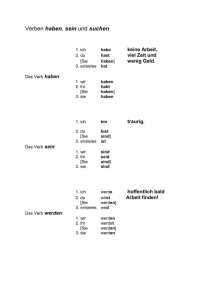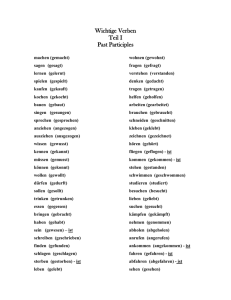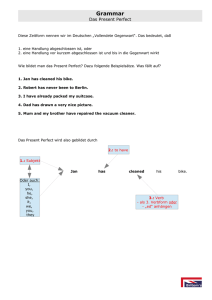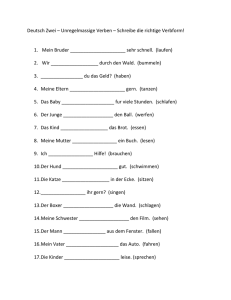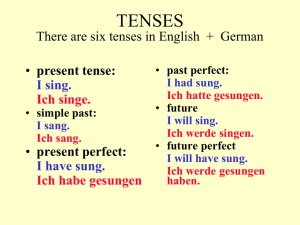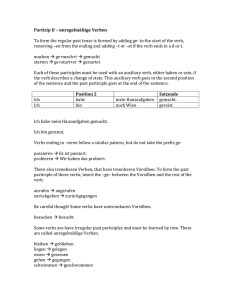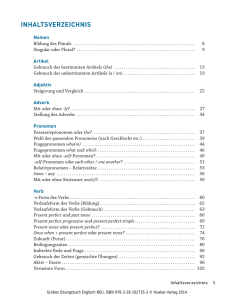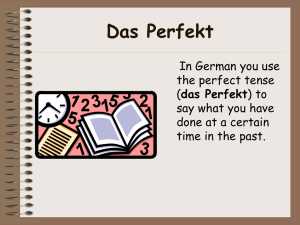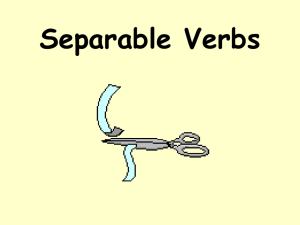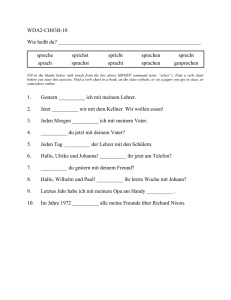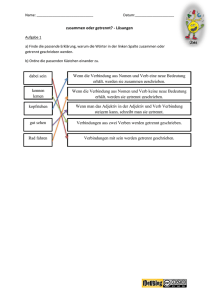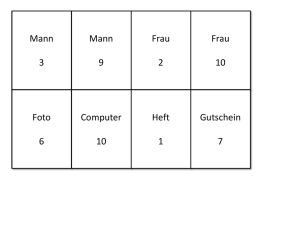Present Perfect
Werbung
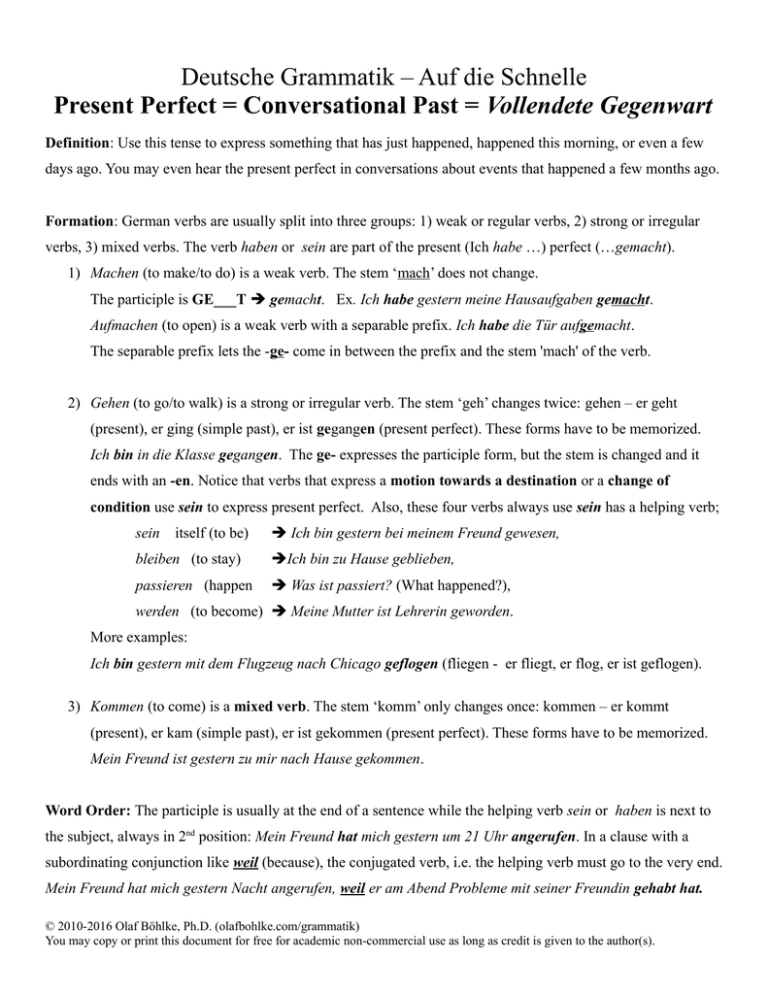
Deutsche Grammatik – Auf die Schnelle Present Perfect = Conversational Past = Vollendete Gegenwart Definition: Use this tense to express something that has just happened, happened this morning, or even a few days ago. You may even hear the present perfect in conversations about events that happened a few months ago. Formation: German verbs are usually split into three groups: 1) weak or regular verbs, 2) strong or irregular verbs, 3) mixed verbs. The verb haben or sein are part of the present (Ich habe …) perfect (…gemacht). 1) Machen (to make/to do) is a weak verb. The stem ‘mach’ does not change. The participle is GE___T gemacht. Ex. Ich habe gestern meine Hausaufgaben gemacht. Aufmachen (to open) is a weak verb with a separable prefix. Ich habe die Tür aufgemacht. The separable prefix lets the -ge- come in between the prefix and the stem 'mach' of the verb. 2) Gehen (to go/to walk) is a strong or irregular verb. The stem ‘geh’ changes twice: gehen – er geht (present), er ging (simple past), er ist gegangen (present perfect). These forms have to be memorized. Ich bin in die Klasse gegangen. The ge- expresses the participle form, but the stem is changed and it ends with an -en. Notice that verbs that express a motion towards a destination or a change of condition use sein to express present perfect. Also, these four verbs always use sein has a helping verb; sein itself (to be) Ich bin gestern bei meinem Freund gewesen, bleiben (to stay) Ich bin zu Hause geblieben, passieren (happen Was ist passiert? (What happened?), werden (to become) Meine Mutter ist Lehrerin geworden. More examples: Ich bin gestern mit dem Flugzeug nach Chicago geflogen (fliegen - er fliegt, er flog, er ist geflogen). 3) Kommen (to come) is a mixed verb. The stem ‘komm’ only changes once: kommen – er kommt (present), er kam (simple past), er ist gekommen (present perfect). These forms have to be memorized. Mein Freund ist gestern zu mir nach Hause gekommen. Word Order: The participle is usually at the end of a sentence while the helping verb sein or haben is next to the subject, always in 2nd position: Mein Freund hat mich gestern um 21 Uhr angerufen. In a clause with a subordinating conjunction like weil (because), the conjugated verb, i.e. the helping verb must go to the very end. Mein Freund hat mich gestern Nacht angerufen, weil er am Abend Probleme mit seiner Freundin gehabt hat. © 2010-2016 Olaf Böhlke, Ph.D. (olafbohlke.com/grammatik) You may copy or print this document for free for academic non-commercial use as long as credit is given to the author(s).
